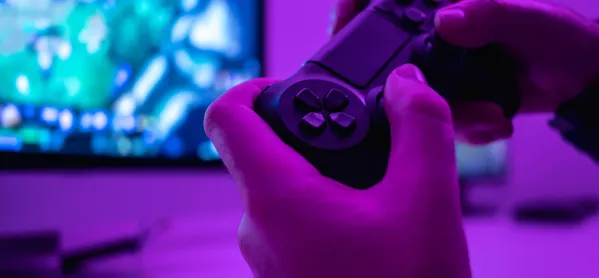Ofsted’s chief inspector Amanda Spielman has said that online squabbles that happened while schools were closed are now being played out in classrooms this term.
In a major new report into how schools are supporting pupils to return to full-time education, the inspectorate said that fall-outs over social media during the first national lockdown are continuing in person now pupils are back in school.
Ofsted has also found that, while many school leaders say that behaviour has improved, others warn that pupils’ willingness to follow rules has deteriorated compared with when they first returned to school in September.
Pressure: Heads warn of unrealistic burden during pandemic, Ofsted finds
Ofsted: Most pupils have slipped behind in learning during lockdown
Exclusive: Majority of teachers say behaviour has got worse
Poll: Third of teachers say they are disciplining pupils for not following Covid rules
In a commentary published today to accompany Ofsted’s report, Ms Spielman said: “School leaders reported that boys in particular had spent much of the lockdown gaming online with friends.
“That, and social media use more generally among boys and girls, has impacted on the established social networks in schools.
“Leaders told us that although the return to clear structures and boundaries at school has often resulted in an unexpected improvement in behaviour, online squabbles while schools were closed are now being played out in classrooms.”
Ofsted’s report also linked behaviour and anxiety “issues” to pupils’ use of social media.
As well as pupils falling out, it also highlights how students who did not have any access to social media at all during the first national lockdown felt isolated from their peers and out of step with them now they are back at school.
Time spent video gaming was also seen as a factor that was influencing some boys’ behaviour.
“Leaders attributed certain issues with behaviour and anxiety to pupils’ use of social media,” the report says.
“For example, leaders explained how some pupils had fallen out with each other through social media during the first national lockdown, and said that these issues were continuing now pupils were back at school.
“Other pupils had not had any access to social media at all during this period, which had led to them feeling isolated from their peers and out of step with them now they were back at school.”
The new report from Ofsted’s visits to schools this term also finds that pupils have been kept off school because of parents’ concerns about the coronavirus.
The watchdog’s first report from its visits, published last month, had found that around a third of the schools visited had seen an increase in children being educated at home.
Today’s report shows that around half of schools visited have seen an increase in homeschooling, with leaders saying this was being motivated by parents’ fears about the virus, “rather than their committed desire to home-educate”.
The inspectorate’s new report also highlights how Covid-19 is resulting in pupils being sent home when there is a case at their school.
Ofsted said that a quarter of all schools it had visited had sent bubbles of pupils home to self-isolate, with this happening more frequently in secondary schools than in primary schools.
The report added: “Most commonly, this involved between 15 and 80 pupils. However, in a few cases, large numbers of pupils were involved - over 100 in primary, and occasionally over 400 in secondaries when pupils in more than one year group had been tested positive for Covid-19.”
In a few cases, school leaders told Ofsted that they were now being advised by Public Health England (PHE) to send fewer pupils home than they had done previously.
The new Ofsted report also warns that headteachers are facing “unrealistic pressure” as a result of frequently changing and last-minute Department for Education advice on Covid-19.




